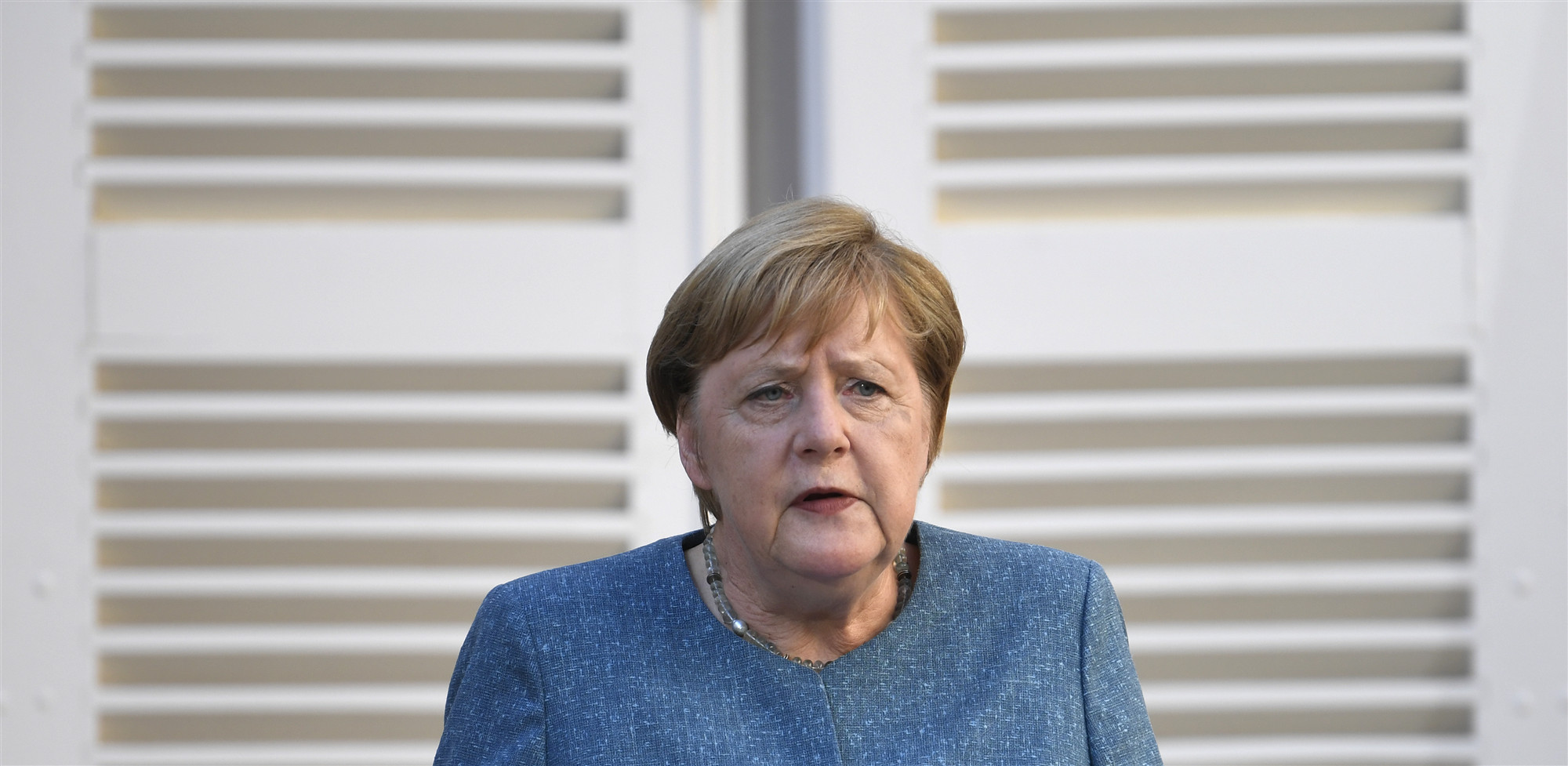German Chancellor Angela Merkel says she is "seeking dialogue" with Belarus President Alexander Lukashenko after the EU rejected the country's election results.

German Chancellor, Angela Merkel, says she wants to speak to Belarus President Alexander Lukashenko directly to initiate reform in the country. (Photo: AFP)
Lukashenko, who has been in power for 26 years, was re-elected after winning 80 percent of the vote, but demonstrators and critics believe the election was rigged.
On Wednesday Charles Michel, President of the European Council, said the bloc didn't recognise Lukashenko's victory and would impose sanctions on key figures within the Belarus government.
Merkel has now revealed she wants to speak directly to the Belarusian leader, after speaking at a joint news conference alongside French President Emmanuel Macron.
She said: "President Lukashenko has not yet spoken to anyone on the phone, but we are seeking dialogue, and we will of course insist on certain things.
That means release of prisoners, not violence, freedom of expression, freedom of demonstration."
Merkel also took the opportunity to offer support to Russian politician Alexei Navalny, who is in a coma after falling ill on a flight on Thursday.
Navalny's supporters and doctor claim he has been poisoned in a politically motivated attack, but medical staff treating the 44-year-old say they are still investigating the cause of his illness.
Merkel added: "Regarding Mr. Navalny, we in Germany were also very shocked by the news that he is in a hospital in what sounds like a very worrying condition. I hope for and wish him a quick recovery."
French President Emmanuel Macron has offered Navalny medical support and protection and Merkel says Germany will do everything they can to help.
"If that's wished for the same that goes for France also goes for Germany, that we would provide him with all necessary medical aid in German hospitals but that obviously needs to be decided there.
What is particularly important is that the circumstances behind this are cleared up very quickly. We insist on this, because what we have heard so far is very unfavourable. It must be done very transparently."


